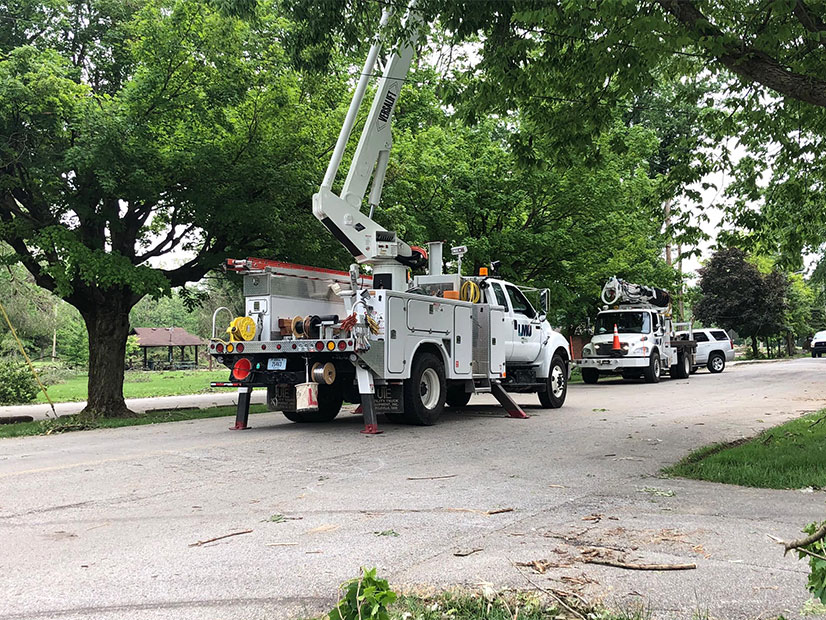FERC last week partially accepted PJM’s compliance filing to amend its tariff regarding the station power monthly netting provision.
The commission ruled that PJM’s new subsection 1.7.10(d)(iv) of the tariff largely addressed requested clarifications required by a September 2020 order that ruled that generating facilities that are not online and producing energy must pay for their station power at retail rates subject to state jurisdiction (EL20-56).
But FERC found one portion of the new subsection required clarification and requested an additional filing within 30 days.
FERC said in its September order that an offline generator that requires power to operate its lighting, air conditioning and other facilities “is consuming electricity as an end user and thus, consistent with the boundaries of the commission’s jurisdiction under the [Federal Power Act], the provision of station power is a retail sale subject to state jurisdiction.”
The ruling came in response to a March 2020 complaint filed by Lawrenceburg, Ind., and the Indiana Municipal Power Agency against PJM, American Electric Power Service and Lawrenceburg Power seeking to void the power self-supply monthly netting provisions of the PJM’s tariff (EL20-30). (See Indiana City Wine Ruling on Station Power.)
FERC said PJM’s proposed revisions should clarify that the monthly netting provision in section 1.7.10(d)(i) “does not determine whether a retail sale of station power has occurred in that month.” It also said any tariff provisions should clarify that the RTO has no responsibility for the determination of any state-jurisdictional retail rates.
In November, PJM responded to the commission’s September ruling by adding the new subsection to the tariff and its operating agreement.
The commission said the first clause of the new subsection, which says “the Office of the Interconnection is not responsible for determining relevant electric retail regulatory authority-jurisdictional retail rates, and the monthly netting provision in section 1.7.10(d)(i) above does not determine whether a retail sale of station power has occurred in a month,” complies with its directives from the September order. It said PJM was directed to clarify that section 1.7.10(d) applies only to FERC-jurisdictional transmission charges.
“We find that this proposed revision unequivocally establishes that section 1.7.10(d) cannot be used to determine whether a retail sale of station power has occurred and thereby, removes any ambiguity that previously existed in PJM’s tariff regarding the provision of station power consistent with the September 2020 order,” the commission said.
FERC said PJM’s “savings clause” in the new section is inconsistent with directives from the September order. That proviso states that “nothing in this section limits a market seller’s ability to simultaneously self-supply energy from one generation facility owned by such market seller to a different generation facility owned by the same market seller.” The commission said the proviso “reinjects ambiguity regarding the provision of station power into PJM’s tariff.”
While FERC noted that PJM said that the proviso did not claim to “establish netting among a market seller’s multiple generation facilities on a monthly basis at odds with retail service netting determinations,” the commission determined that it “does just that by specifically excluding the applicability of remote self-supply from the previous clause.”
FERC also said it was unclear what “simultaneous” remote self-supply means in the proviso and how that is different from the remote self-supply described in existing subsections of the PJM tariff.
“The September 2020 order made clear that the PJM tariff cannot be used to determine whether a retail sale of station power has occurred, as jurisdiction over that determination lies with the states,” FERC said in the filing. “PJM’s proposed language without the proviso accomplishes that directive.”
FERC directed PJM to file an additional compliance filing within 30 days, removing the proviso from the proposed tariff language.
The commission found that the rest of the new subsection was consistent with the September order.



